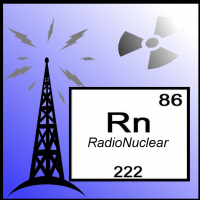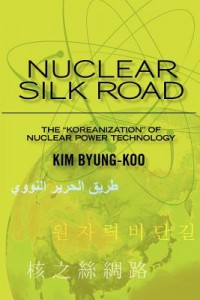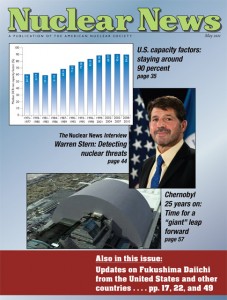Inside the New Safe Confinement covering the sarcophagus of Chernobyl’s Unit 4. (Photo: SSE Chornobyl NPP)
A team of scientists from the United Kingdom’s University of Bristol were given access to the Chernobyl nuclear power plant in Ukraine, advancing a project to train robots and artificial intelligence systems to measure radiation and create 3D maps.
A slideshow of the team’s visit to Chernobyl’s Unit 4 control room and New Safe Confinement structure, where they deployed radiation mapping and scanning sensors, including a LIDAR-equipped robot call Rooster, appears on Gizmodo.
The Chernobyl site in 2017 following the placement of the New Safe Confinement structure. (Photo: EBRD)
No matter the discipline, reporting on technical issues for a mass audience is fraught with pitfalls. To make the subject understandable to the layperson, authors make generous use of analogies, which are inherently incomplete and tenuous, like a stone house being built on swampland.
Likewise, in an effort to garner as many clicks or views as possible, reporters and news outlets will often resort to sensationalism, making the news being reported more dramatic than it is. (To be fair, those supplying the news can also be guilty of sensationalism in their hunger for media coverage.)
Author Joshua Goldstein, from the video "The Nuclear Option"
Climate activists rarely mention nuclear power as a tool in the battle against climate change, consumer reporter John Stossel comments during the video "The Nuclear Option" on his YouTube channel.
Participating in the ceremony to hand over the ISF-2 operating license are (from left) Valery Seyda, acting director general of the Chernobyl nuclear power plant; Ukrainian President Volodymyr Zelensky; and SNRIU Chairman Grigoriy Plachkov.
Ukraine’s State Nuclear Regulatory Inspectorate (SNRIU) has authorized the operation of Chernobyl’s Interim Storage Facility (ISF-2), allowing spent nuclear fuel from the plant’s three undamaged reactors to be loaded into the dry storage facility. The handover of the ISF-2 operating license was carried out during a ceremony held on April 26, the 35th anniversary of the Chernobyl accident, and was attended by Ukraine’s president, Volodymyr Zelensky.
Point Beach Units 1 and 2. Photo: NRC
An atomic safety and licensing board has been established to address a hearing request filed on behalf of an antinuclear group regarding the subsequent license renewal (SLR) application for NextEra Energy’s Point Beach reactors, located near Two Rivers, Wis. The Nuclear Regulatory Commission published notice of the panel’s formation in the April 2 Federal Register.










 Welcome to the New Year! Even though I am on the road, there is just so much happening lately in nuclear I could not pass up the opportunity to talk about it!
Welcome to the New Year! Even though I am on the road, there is just so much happening lately in nuclear I could not pass up the opportunity to talk about it! 
![tr-senate[1]](https://cdn.ans.org/cafe/2011/08/tr-senate16.jpg)

